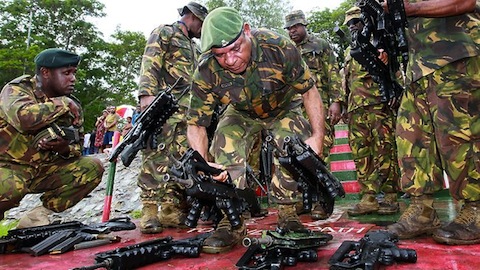
The recent unpleasantness is Papua New Guinea provides a salient reminder that the global financial system, despite employing some very sharp minds, often acts on impulse. In response to the recent mutiny outside Port Moresby, Standard & Poor’s has slashed PNG’s credit rating. An S&P analyst explained the firms rational thusly:
We have these ratings under surveillance all the time, but we fully factor in, I mean the rating is B-plus, it factors in significant political risk already, but when we see mutinies of the type that we’ve been witnessing over the last few days, that is a true trigger for us that the levels of political risk are that much more higher than what we’ve been witnessing.
And so what did the analyst mean by “mutinies of this type”? As this piece points out, the revolt was by no means a mass movement:
Of the 200 troops [at the barracks], only about 30 were believed to have been involved in the mutiny, which began last Thursday under the leadership of Michael Somare’s appointee, Colonel Yawra Sasa.
Furthermore, those thirty mutineers were so half-hearted in their attempt that they readily swapped their guns for amnesty. As this insightful story points out, the mutiny was just a sideshow in a political clash that has been going on for months—a battle between Sir Michael Somare and Peter O’Neill over the prime minister’s office, a prize that will guarantee them awesome powers of patronage.
The mutiny will ultimately do nothing to alter PNG’s politics—it’s impact pales in comparison to, say, the December Supreme Court ruling that gave Somare some measure of legitimacy. But the foreign financial wizards who decide the country’s economic fate only pay attention when something sensational occurs—even if that something is totally inconsequential.
(Image via The Australian)


Like gas stations in rural Texas after 10 pm, comments are closed.